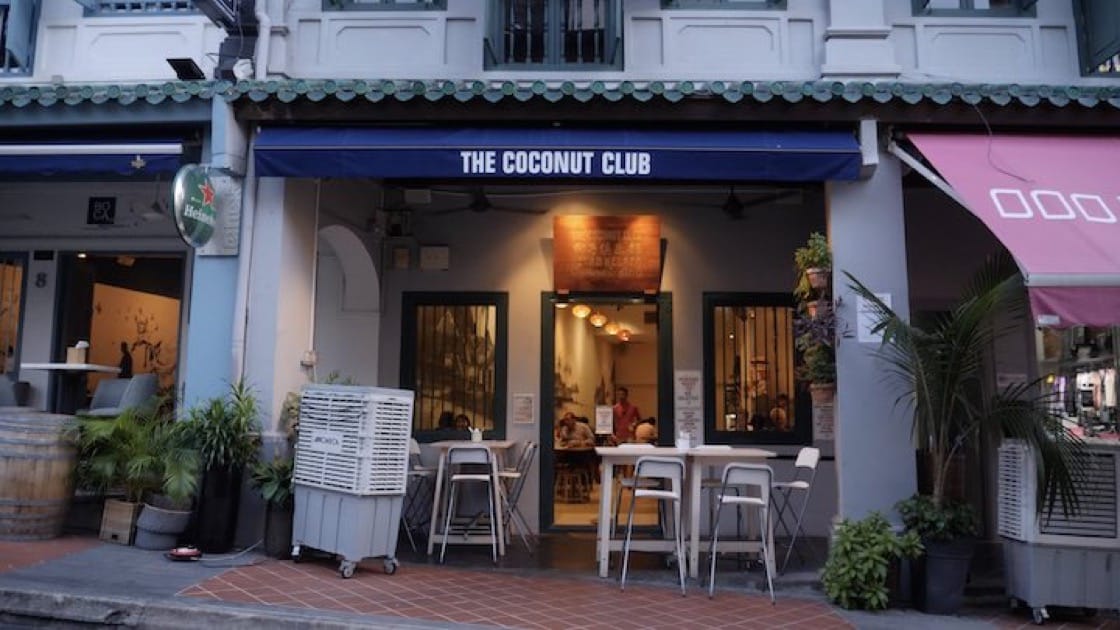Then, he attended a nasi lemak convention in Kuala Lumpur in 2014, which fired up his appetite for nasi lemak and curiosity to cook the Malay dish that traditionally comprises coconut rice, fried chicken, ikan bilis, fried egg and sambal.
He says: “I was blown away by nasi lemak in Malaysia. It is like a cuisine, in which the rice is served with so many side dishes from tempeh (fermented soybean) to fermented durian. As a chef, when I come across a good dish, I want to cook it myself.”

Their hard work and tenacity paid off when the 65-seat restaurant in Ann Siang Hill was recognised with Bib Gourmand status in the MICHELIN Guide Singapore 2018. The coconut-centric restaurant is so well-regarded for its nasi lemak that Singapore Prime Minister Lee Hsien Loong hosted Philippine President Rodrigo Duterte there for a meal in December 2016.

One of the biggest challenges that the trio faced was scouring for the right types of coconut. After numerous visits to coconut wholesalers and plantation owners in Malaysia, they narrowed their selection to two types of coconuts: the Malaysian West African (MAWA) hybrid from Selangor, which is known for its high fat content, and kampong coconuts from Johor.
Lee Eng Su notes that the flavour of coconut milk comes from its fat. He uses a blend of these two varieties of coconut so that the resulting milk contains 36% of fat that yields an “optimum flavour”.
By importing the coconuts themselves, the conditions and age of the fruit can be carefully monitored. Fresh batches of coconuts are delivered to the shop every other day, where the staff juice the coconuts manually.

At $12.80, the price of the nasi lemak has raised some eyebrows among foodies here. The owners explain that the price tag is justified by the huge amount of effort that goes into sourcing the ingredients, cooking and creating a comfortable restaurant ambience with good service.
Besides nasi lemak, The Coconut Club also serves dishes that make use of the aromatic coconut milk, such as chendol, kueh salat (glutinous rice with coconut custard), kueh kosui (steamed gula melaka cake with grated coconut) and savoury dishes like sayur lemak (vegetable stew).
RELATED: Click here for more Bib Gourmand stories.























